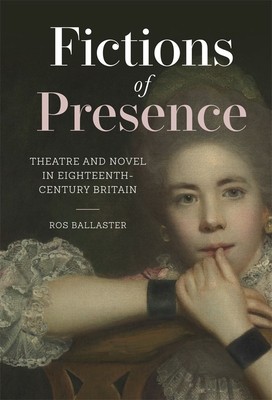
- We will send in 10–14 business days.
- Author: Ros Ballaster
- Publisher: Boydell Press
- ISBN-10: 1783275588
- ISBN-13: 9781783275588
- Format: 15.6 x 23.4 x 2.1 cm, hardcover
- Language: English
- SAVE -10% with code: EXTRA
Reviews
Description
An absorbing study of the contested embodiment of the idea of "presence" in the plays and novels of the eighteenth century.
In the years following the 1737 Licensing Act, the English stage found itself for the first time facing serious competition from the novel - newly respectable and increasingly fashionable. But the story is not one of theatre's decline and the novel's rise. As Ros Ballaster shows in this lively and innovative study, the relationship between the two media was one of an intensely creative and productive rivalry. Novelists sent their heroes to the theatre, dramatists appropriated the plots of popular novels, the celebrity status of actors was advanced through guest appearances in printed prose fictions. Some figures, like Richardson's virtuous serving maid Pamela, or Sterne's eccentrichumourist Tristram Shandy, acquired such independent lives in the minds of the public that they migrated into the mainstream of popular culture.Fictions of Presence describes how major authors of the period - Eliza Haywood, Henry Fielding, Charlotte Lennox and Oliver Goldsmith - spanned both genres. It charts the movement of popular fictional characters between stage and page. And it looks at the representation of contemporary audiences and readers in the new types of the (female) mimic and the (male) critic. Crucially, Ballaster delineates the ground over which the two media competed: the ability to create 'presence' - a sense of being present with the moment of action, of finding 'being' in fictional worlds - in the mind's eye of readers and theatregoers. In so doing, she not only illuminates the shared history of the theatre and the novel, but describes the power of aesthetic experience itself.
EXTRA 10 % discount with code: EXTRA
The promotion ends in 17d.21:45:14
The discount code is valid when purchasing from 10 €. Discounts do not stack.
- Author: Ros Ballaster
- Publisher: Boydell Press
- ISBN-10: 1783275588
- ISBN-13: 9781783275588
- Format: 15.6 x 23.4 x 2.1 cm, hardcover
- Language: English English
An absorbing study of the contested embodiment of the idea of "presence" in the plays and novels of the eighteenth century.
In the years following the 1737 Licensing Act, the English stage found itself for the first time facing serious competition from the novel - newly respectable and increasingly fashionable. But the story is not one of theatre's decline and the novel's rise. As Ros Ballaster shows in this lively and innovative study, the relationship between the two media was one of an intensely creative and productive rivalry. Novelists sent their heroes to the theatre, dramatists appropriated the plots of popular novels, the celebrity status of actors was advanced through guest appearances in printed prose fictions. Some figures, like Richardson's virtuous serving maid Pamela, or Sterne's eccentrichumourist Tristram Shandy, acquired such independent lives in the minds of the public that they migrated into the mainstream of popular culture.Fictions of Presence describes how major authors of the period - Eliza Haywood, Henry Fielding, Charlotte Lennox and Oliver Goldsmith - spanned both genres. It charts the movement of popular fictional characters between stage and page. And it looks at the representation of contemporary audiences and readers in the new types of the (female) mimic and the (male) critic. Crucially, Ballaster delineates the ground over which the two media competed: the ability to create 'presence' - a sense of being present with the moment of action, of finding 'being' in fictional worlds - in the mind's eye of readers and theatregoers. In so doing, she not only illuminates the shared history of the theatre and the novel, but describes the power of aesthetic experience itself.


Reviews